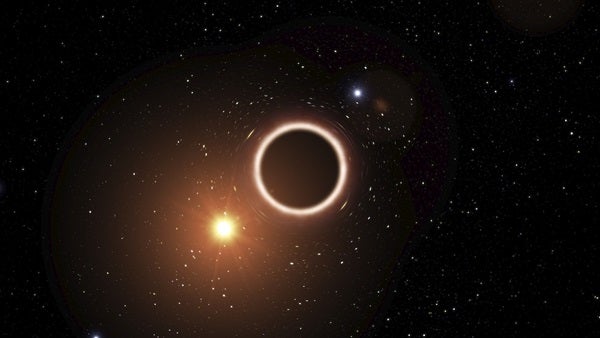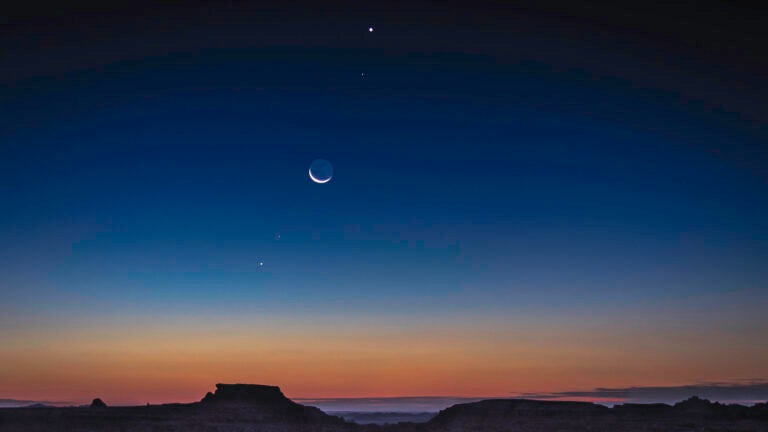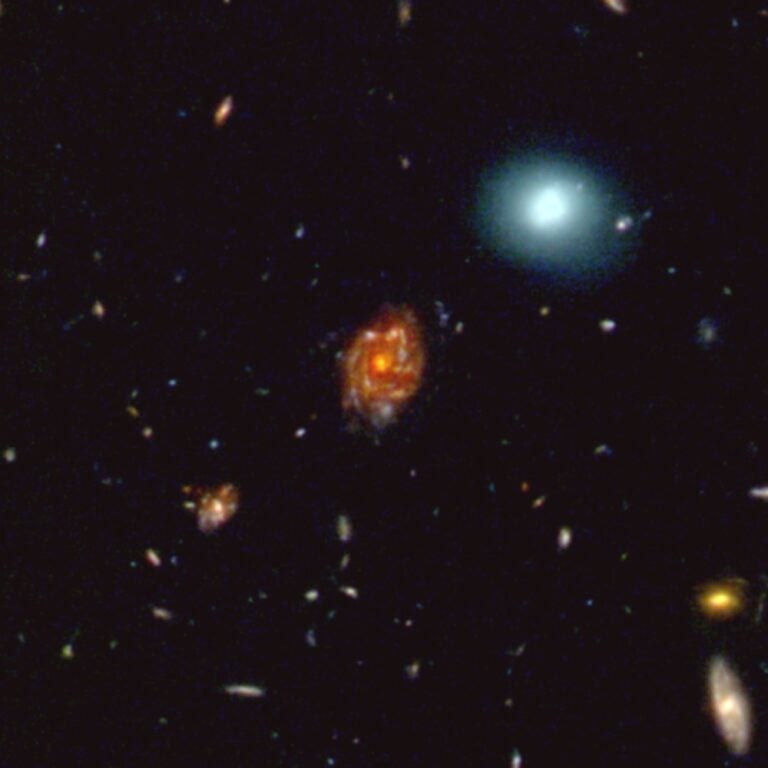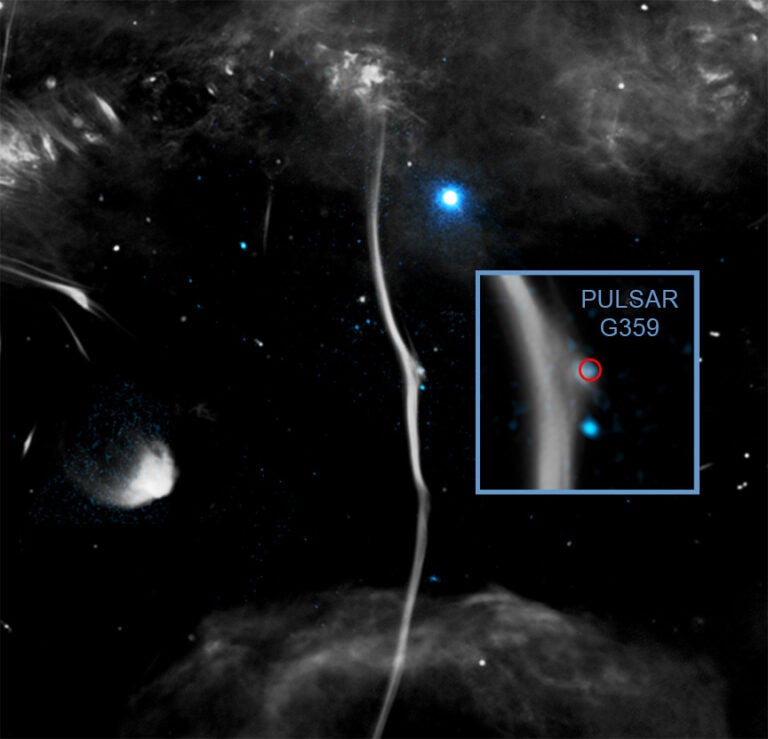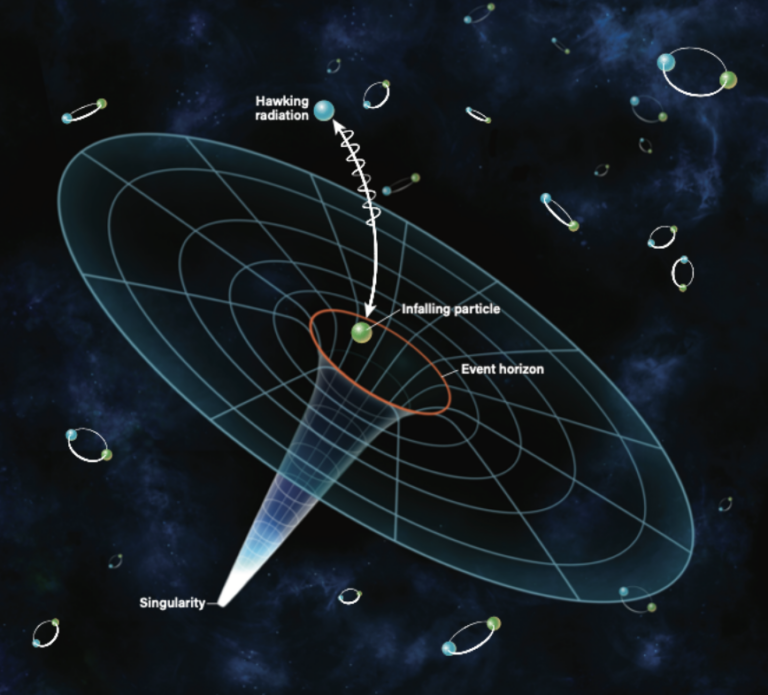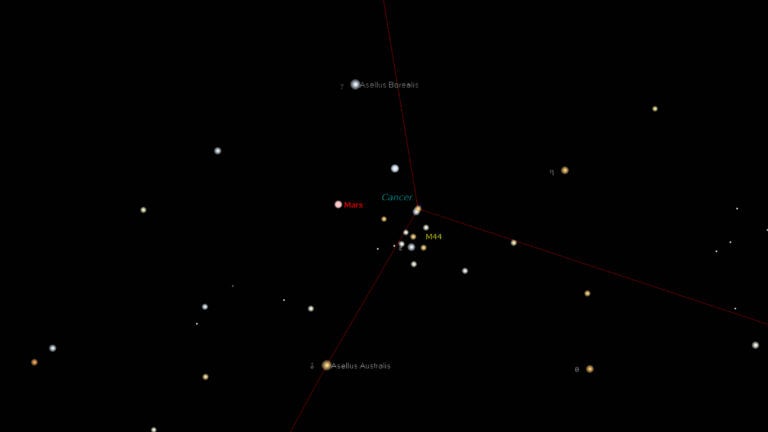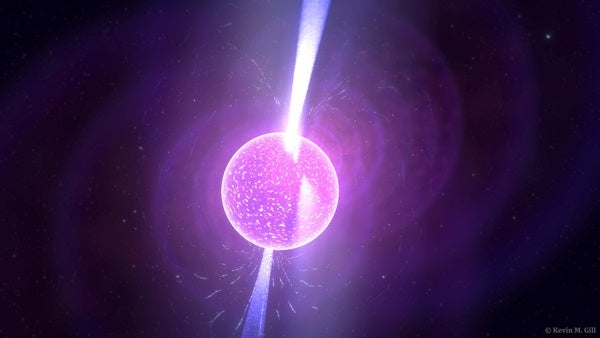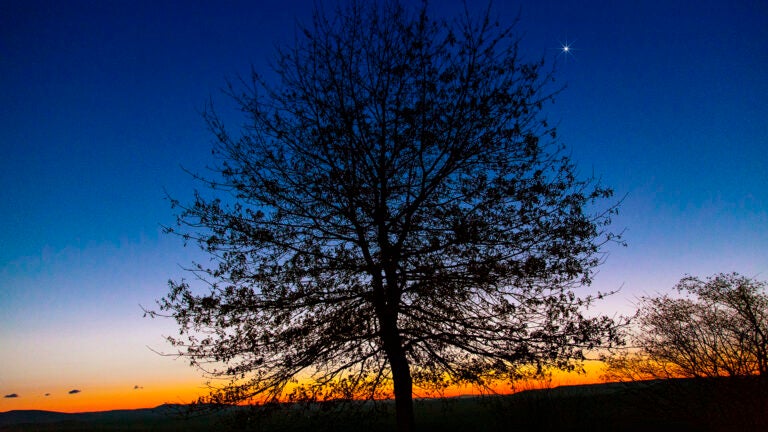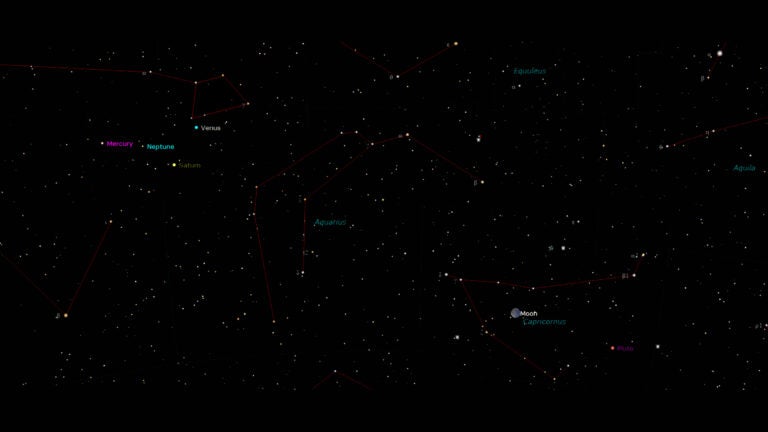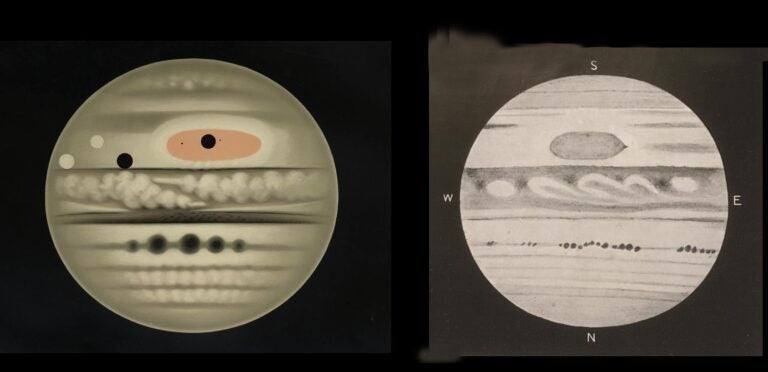I’ve seen it suggested that the hypothetical planet Nine could be a black hole five to 10 times the mass of Earth. As I understood it, however, the minimum weight of a black hole is 3 solar masses, so how could the Planet be a black hole?
Typically, black holes fall into one of three categories: stellar-mass, intermediate-mass, or supermassive. The lower limit for a stellar-mass black hole is still unclear. When a large star goes supernova, it leaves behind a remnant — either an extremely dense object, known as a neutron star, or a black hole. While astronomers still aren’t sure exactly where the boundary between neutron stars and black holes lies, they suspect it is somewhere between 1.7 and 2.7 times the mass of the Sun. And the lightest black hole scientists have found is XTE J1650-500, which weighs in at just 3.8 solar masses.
But there’s another type of black hole that may exist, though we haven’t seen it yet: primordial black holes.
In the grand scheme of things, space is homogenous, meaning it is the same at every point. But early in the universe, just one second after the Big Bang, that likely wasn’t the case. At that time, some parts of the universe were denser and hotter than others, making it possible that some of those regions collapsed into primordial black holes. Even though one second may not seem like a lot of time, depending on when exactly during that second a primordial black hole formed, its mass could be as low as 10-7 ounce (10-5 gram) or as high as 100,000 solar masses. (The merging of primordial black holes is considered a possible explanation for how supermassive black holes grew so large.)
Whether or not Planet Nine exists at all is still up for debate, but if it does, it will in all likelihood be a planet instead of a black hole. Still, although the odds are small, there is a chance that a primordial black hole is hiding in our own backyard. And if it is, just imagine the new doors it would open for physics!

